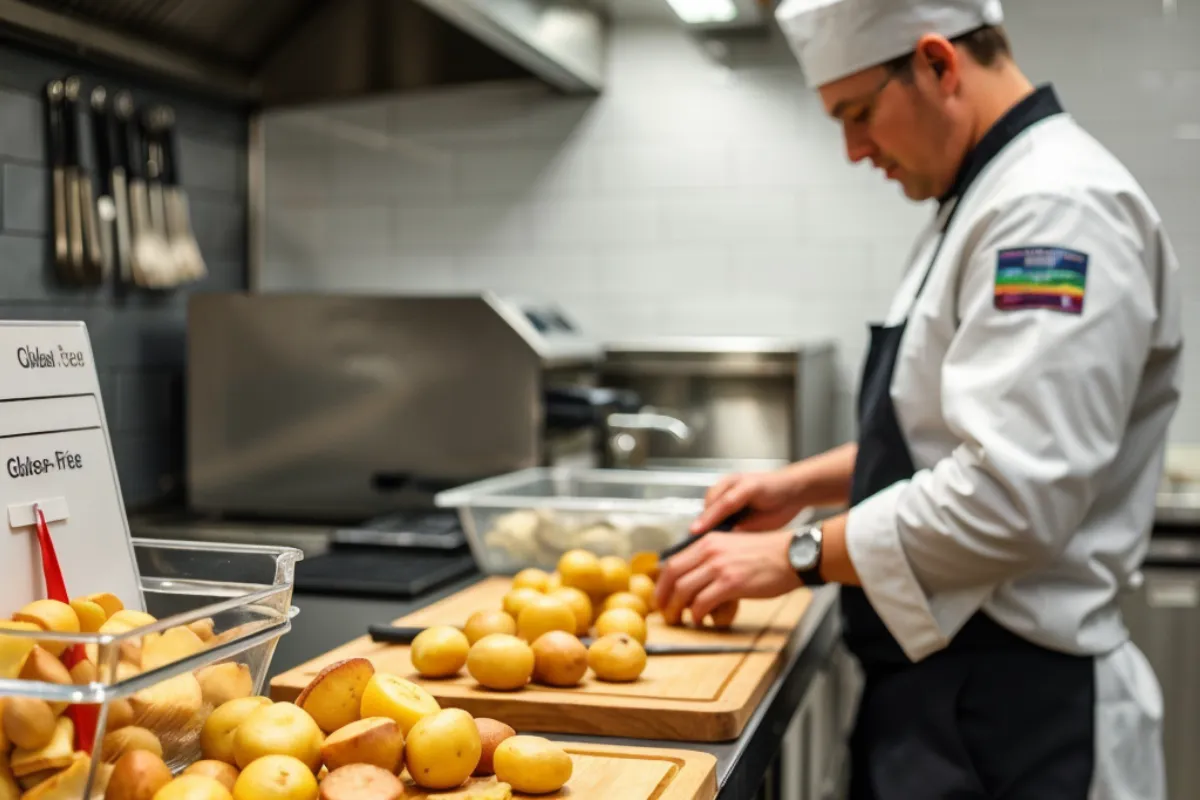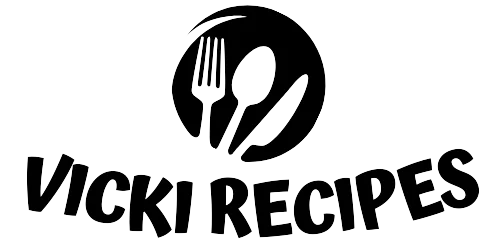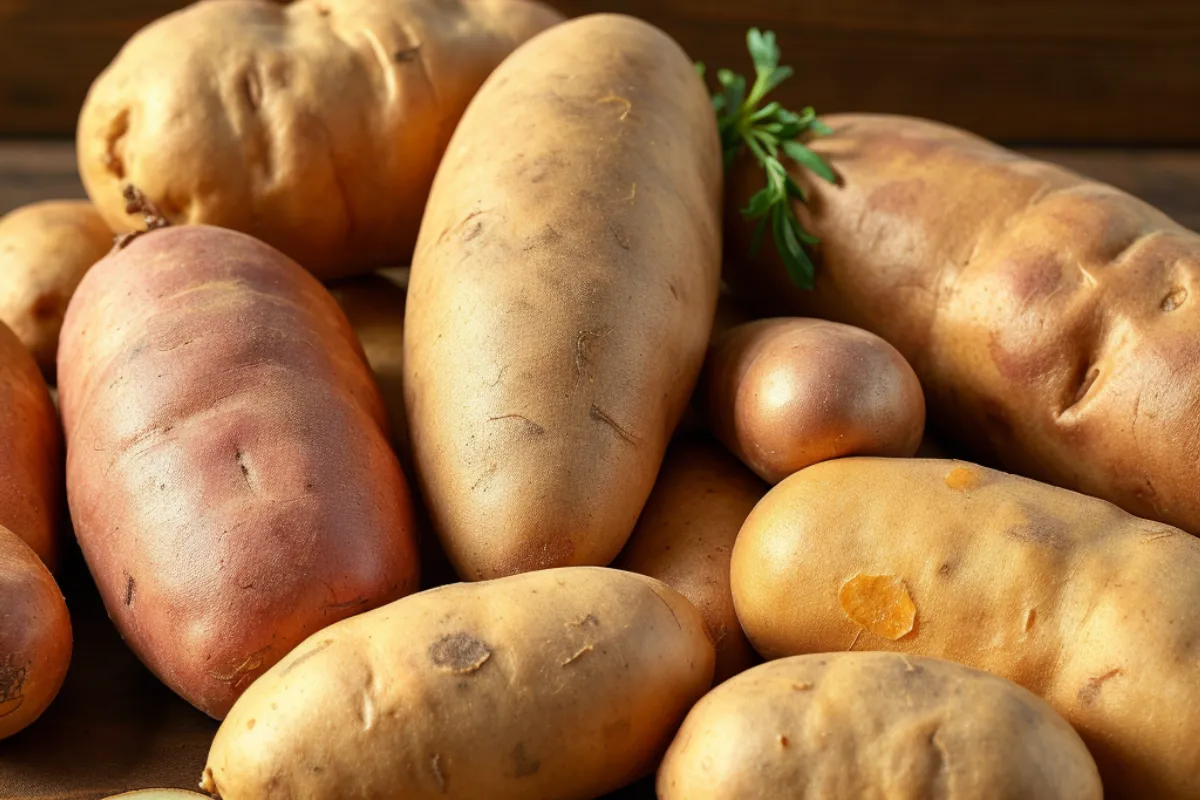Introduction to Potatoes and Gluten
When navigating a gluten-free diet, understanding which foods are safe and which ones aren’t is crucial. Gluten is a protein found in wheat, barley, rye, and their derivatives. It is responsible for giving dough its elasticity and structure. However, for people with celiac disease or gluten sensitivity, consuming gluten can lead to a range of health issues, from digestive discomfort to serious intestinal damage.
Potatoes are one of the most common and versatile foods worldwide, enjoyed in countless forms. However, there’s often confusion about whether potatoes contain gluten, especially when considering the various ways they are prepared and processed. This article will explore the relationship between potatoes and gluten, addressing common misconceptions, providing preparation tips, and offering gluten-free recipe ideas.
Are Potatoes Naturally Gluten-Free?
The simple answer is yes—potatoes are naturally gluten-free. Since gluten is found in grains, and potatoes are tubers, they do not contain gluten in their natural state. Whether you’re eating a russet, red, or sweet potato, you can enjoy them knowing they are gluten-free.
However, it’s essential to be aware of potential cross-contamination during preparation. Cross-contamination occurs when gluten-free foods come into contact with gluten-containing ingredients or surfaces. For example, if you use the same cutting board or fryer oil for both gluten-containing and gluten-free foods, you risk contaminating the potatoes with gluten. To prevent this, always use dedicated kitchen tools and spaces for gluten-free cooking. You can learn more about the risks of cross-contamination here.
Gluten-Free vs. Gluten-Containing Potato Products
While potatoes in their natural state are gluten-free, not all potato-based products are safe for those avoiding gluten. Here’s a breakdown of what to look out for:
Naturally Gluten-Free Potato Products
- Whole potatoes: Russet, red, Yukon gold, sweet potatoes, etc.
- Baked potatoes: Prepared without any gluten-containing toppings or additives.
- Homemade mashed potatoes: Using gluten-free ingredients like butter and milk.
Common Potato Products That May Contain Gluten
- Instant mashed potatoes: Some brands add wheat-based thickeners.
- Frozen potato products: French fries and potato wedges may be coated with flour to enhance crispiness.
- Potato chips: Certain flavors and brands may use gluten-containing seasonings.
When purchasing processed potato products, always check the labels for hidden gluten. Words like “malt,” “modified food starch,” or “hydrolyzed vegetable protein” can indicate the presence of gluten. For more details on reading labels and avoiding gluten, visit Celiac Disease Foundation’s guide.
How Potatoes Fit into a Gluten-Free Diet
Potatoes are not just safe for a gluten-free diet—they can also be a nutritious and versatile component of your meals.
Nutritional Benefits of Potatoes
- Vitamins and Minerals: Potatoes are rich in essential nutrients like vitamin C, potassium, and vitamin B6.
- Fiber: Particularly in the skin, potatoes offer dietary fiber, which aids in digestion.
- Complex Carbohydrates: Potatoes provide long-lasting energy, making them an excellent source of complex carbohydrates.
Incorporating them into your diet can help you maintain a balanced and healthy lifestyle. Whether as a side dish, the main course, or an ingredient in a larger recipe, potatoes can add both flavor and nutrition to your meals.
Potatoes as a Staple in Gluten-Free Meals
Due to their versatility, potatoes can be used in a wide range of gluten-free recipes:
- Baked or roasted potatoes: A simple and healthy option.
- Mashed potatoes: Made with gluten-free butter and milk, they are a comforting side dish.
- Potato soups: Creamy or brothy, these can be easily made gluten-free.
Health Considerations
While potatoes are a healthy addition to a gluten-free diet, moderation is key. Potatoes are high in carbohydrates, and consuming them in excess can lead to blood sugar spikes, especially if you’re using refined potato products like instant mashed potatoes or fries. To balance your diet, pair potatoes with protein and fiber-rich foods.
Potatoes and Cross-Reactivity Concerns
Understanding Cross-Reactivity
Cross-reactivity occurs when the immune system confuses proteins in one food with those in another. This can be a concern for people with celiac disease or gluten sensitivity, who may react to certain foods even if they do not contain gluten. However, it’s important to note that cross-reactivity with potatoes is relatively uncommon.
Do Potatoes Trigger Gluten Sensitivity?
While some people with gluten sensitivity may report digestive issues after eating potatoes, this is typically not due to the presence of gluten. Instead, it could be related to other components of the potato, such as solanine, a natural compound found in nightshade vegetables like potatoes, tomatoes, and eggplants.
Managing Cross-Reactivity
If you suspect that potatoes might be triggering symptoms, it’s advisable to consult with a healthcare professional or a registered dietitian. They can help determine whether potatoes or another food might be causing issues and offer guidance on how to manage your diet accordingly.
Potato-Based Gluten-Free Recipes

Potatoes can be the star of your gluten-free kitchen. Here are five delicious and easy-to-make potato recipes that are completely gluten-free:
1. Baked Potato with Gluten-Free Toppings
A baked potato is a classic comfort food. To make it gluten-free:
- Ingredients: Russet potatoes, butter, sour cream, shredded cheese, chives, bacon (ensure all toppings are gluten-free)
- Instructions: Bake the potatoes in an oven at 400°F for about 1 hour. Split open, fluff the insides with a fork, and add your toppings.
2. Sweet Potato Hash
This hearty dish is perfect for breakfast or brunch:
- Ingredients: Sweet potatoes, bell peppers, onions, olive oil, eggs, salt, pepper
- Instructions: Dice the sweet potatoes and sauté with chopped bell peppers and onions in olive oil. Season with salt and pepper. Top with a fried egg.
3. Gluten-Free Potato Salad
A gluten-free twist on a traditional dish:
- Ingredients: Red potatoes, gluten-free mayonnaise, Dijon mustard, celery, green onions, boiled eggs, salt, pepper
- Instructions: Boil the potatoes until tender. Mix with mayonnaise, mustard, chopped celery, green onions, and eggs. Season to taste.
4. Mashed Potatoes (Made from Scratch)
Ensure your mashed potatoes are gluten-free by making them from scratch:
- Ingredients: Russet potatoes, butter, milk (or cream), salt, pepper
- Instructions: Boil the potatoes until soft. Mash with butter and milk, then season with salt and pepper.
5. Homemade French Fries
Avoid gluten by making French fries at home:
- Ingredients: Potatoes, olive oil, salt
- Instructions: Slice the potatoes into thin strips. Toss in olive oil and bake at 425°F for 25-30 minutes, turning halfway through. Sprinkle with salt.
Common Myths About Potatoes and Gluten
Despite being naturally gluten-free, several myths persist about potatoes and their gluten content. Let’s address and debunk some of these misconceptions:
Myth 1: All Potato Products Are Gluten-Free
While whole potatoes are gluten-free, processed potato products often contain gluten, especially when additives, preservatives, or flavorings are involved.
Myth 2: Potato Starch Contains Gluten
Potato starch is gluten-free and is often used in gluten-free baking as a thickener or to add moisture to baked goods.
Myth 3: Potatoes Can Substitute All Gluten-Containing Foods
While potatoes are versatile, they cannot replace all gluten-containing foods. For example, they cannot replicate the texture and elasticity of gluten in bread or pasta. However, they are an excellent base for many gluten-free dishes.
Debunking Misconceptions
Understanding the facts about potatoes and gluten is essential for anyone following a gluten-free diet. By knowing which potato products are safe and which ones to avoid, you can confidently include potatoes in your meals.
Gluten-Free Alternatives to Potato-Based Dishes
While potatoes are a great gluten-free option, there are other root vegetables and starches you can incorporate into your diet. Here are some alternatives:
Alternative Root Vegetables
- Carrots: Naturally sweet and perfect for roasting or adding to stews.
- Turnips: Great for mashing or adding to soups.
- Parsnips: Slightly sweet and ideal for roasting or mashing.
Non-Potato Starches
- Corn: Cornmeal and polenta are excellent gluten-free options.
- Tapioca: Used as a thickener in soups and sauces.
- Arrowroot: Another gluten-free thickener, ideal for baking.
Recipe Substitutions
If you’re looking to reduce your potato intake or experiment with new flavors, these alternatives can be used in many recipes where potatoes would typically be the star.
FAQs (Frequently Asked Questions)
Here are some of the most common questions about potatoes and gluten:
Is there gluten in potatoes?
No, potatoes are naturally gluten-free. However, processed potato products may contain gluten, so it’s essential to check labels carefully.
Can I eat French fries on a gluten-free diet?
It depends. While potatoes themselves are gluten-free, French fries may be fried in oil that has also been used for gluten-containing foods, leading to cross-contamination. Some frozen fries are also coated in flour to improve texture, so always check the packaging.
What potato products should I avoid if I’m gluten-free?
Avoid processed products such as instant mashed potatoes, as well as some frozen potato products and flavored potato chips; however, only choose these items if they are clearly labeled as gluten-free.
Are sweet potatoes gluten-free?
Yes, sweet potatoes are naturally gluten-free and can be a delicious addition to a gluten-free diet.
How can I avoid gluten cross-contamination with potatoes?
To avoid cross-contamination, use dedicated kitchen tools for gluten-free foods, and be mindful of shared cooking spaces and equipment, especially when frying or baking.
Conclusion: Embracing Potatoes in a Gluten-Free Diet
Potatoes are a safe and versatile food for those following a gluten-free diet. By understanding the risks of cross-contamination, reading labels carefully, and knowing which potato products to avoid, you can confidently include potatoes in your meals. Whether you’re baking, mashing, or frying, potatoes can provide comfort and nutrition without the worry of gluten.
Experiment with new recipes, try different varieties of potatoes, and enjoy the many ways this humble tuber can enhance your gluten-free lifestyle.

